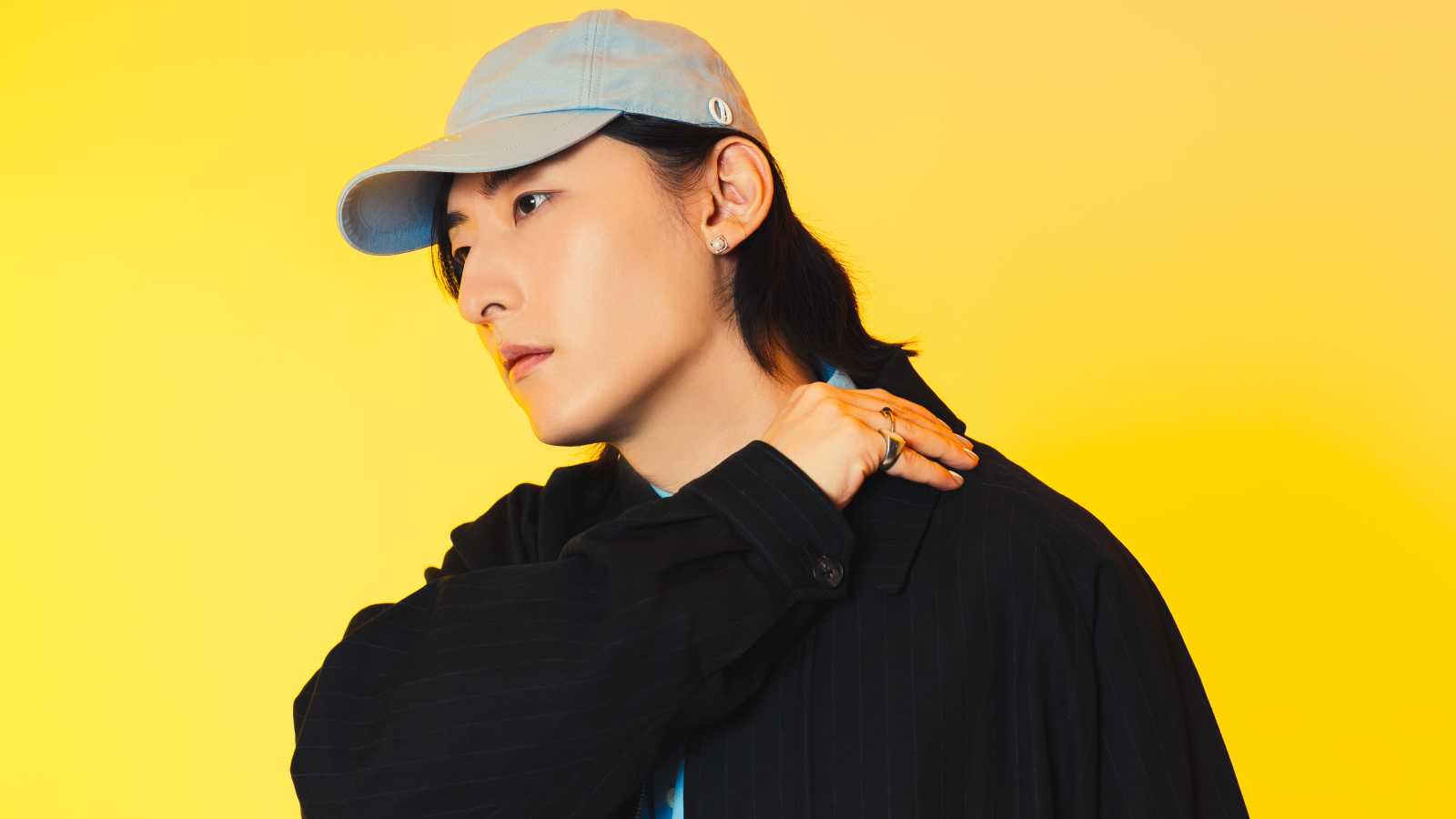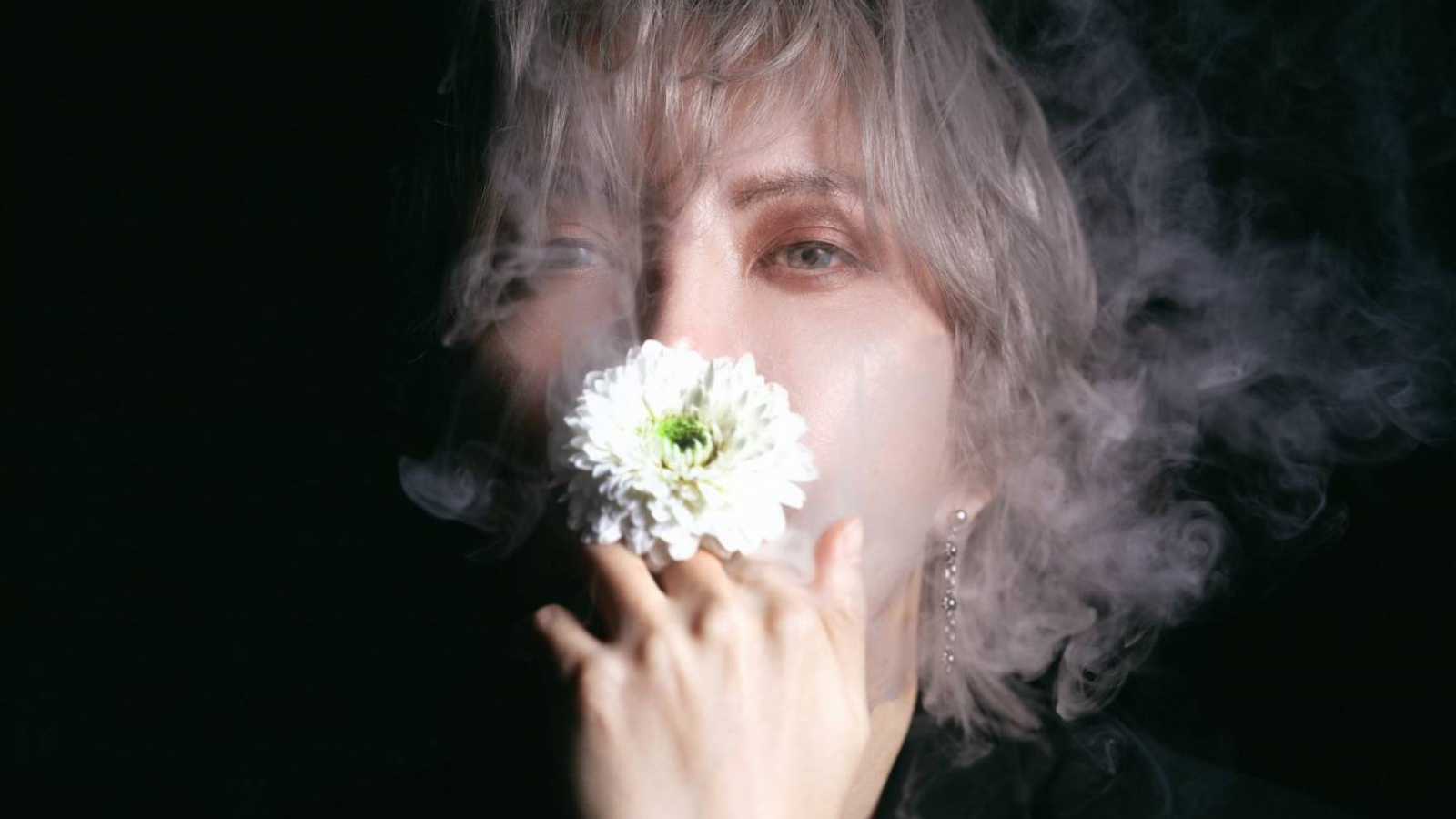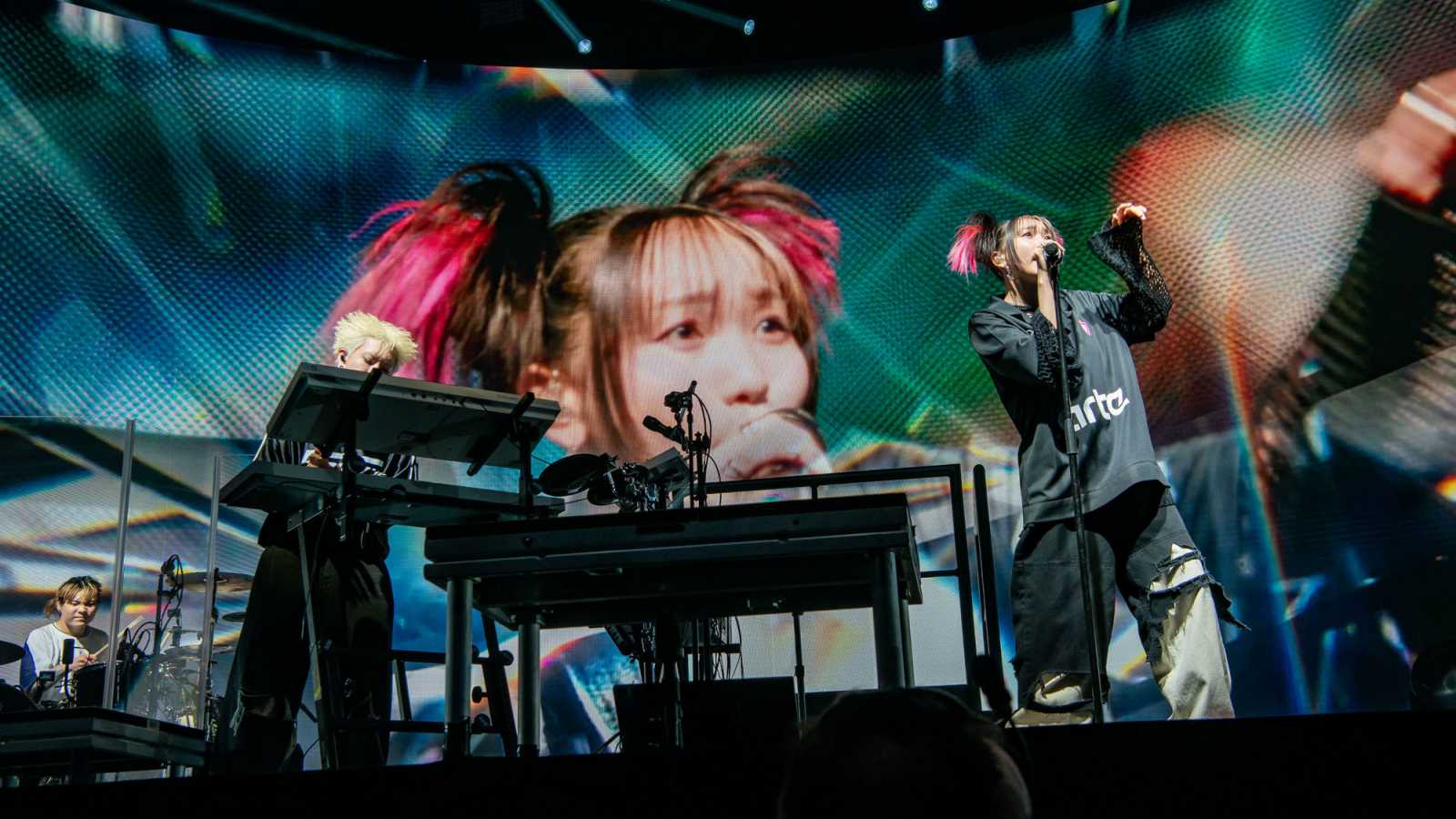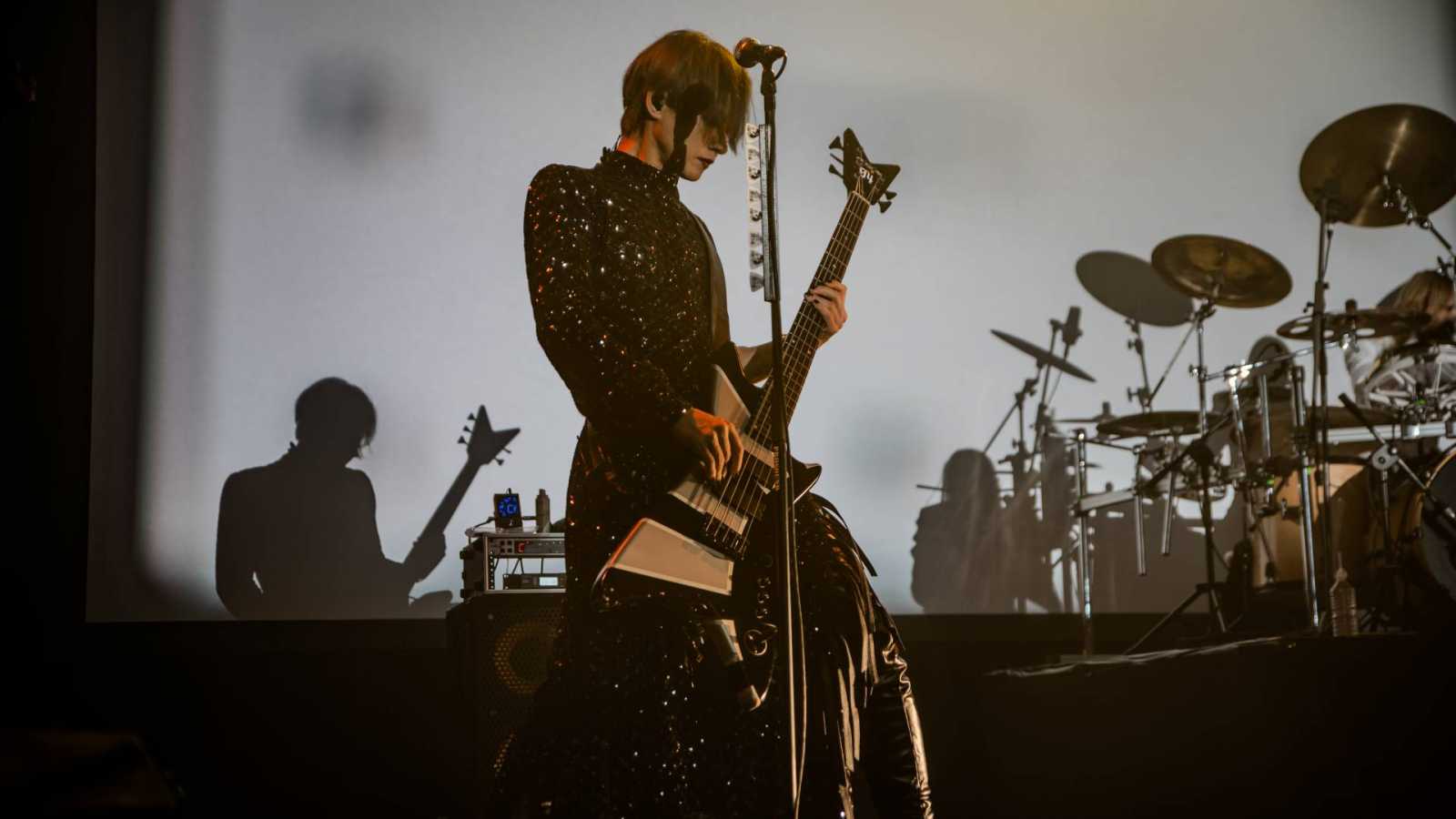Yutaka Ozaki was a legend to a whole generation of young people during the 1980's. Even now, many years after he passed away, the artist still has a strong influence in the world of music.
In October 1982, 17 year-old Yutaka tried to get a deal with the famous CBS Sony Studios in Tokyo. Just a simple song, with simple accoustic guitar accompaniment was enough to convince the people in charge at CBS. They realized that someone extremely talented stood before them, someone capable of turning over the Japanese music industry. With a deal in his pocket Yutaka went off into the autumn night - the beginning of an extraordinary piece of work that was still to follow.
In 1983, he wrote all the songs for his debut album, as well as the music for it himself. He also played all pieces himself. This album then appeared on the 1st of December and was in comparison with other albums that other 17 year olds tend to release, not so easy to see through. It had something amazing about it. Yutaka didn't fit the image of a very successful artist but at the same time temporarily fit into the 'newcomer' phenomenon.
On this album were songs which sang about the rebellion and the lost freedom of the Japanese youth, and at the same time they described the moral society of Japan as an illness. In another song from seventeen's map, Yutaka attacks society for the fact that girls who have lost their life dreams are now selling their bodies. A subject that is still occurring in Japan, and that is still taboo. At the same time, there were songs on the album that became 'evergreens' thanks to their emotions and melancholy.
In 1984, Yutaka began with the lyrics and music for his second album, since it was very important for him in many ways. In the middle of the school year he left school, despite the fact that he would have been sitting at his final exams at the end of the year. To top everything off, he held one of his first concerts on the day he should have been receiving his school report. After this rebellion against the Japanese school system he began a bigger tour, that went through 6 large Japanese cities, starting in Sapporo.
At a concert in a department store, he overestimated himself a bit though, and fell down from a 7 meter high decoration scaffolding which he tried to climb. It could have been fatal for him, but he got away with a broken leg, and had to go on pause for the rest of the year because of that.
Yutaka was very successful the following year. After the release of a single, his second album followed on the 21st of March, which went directly to the top of the selling charts and stayed there several weeks. The lyrics and music came once again completely from his own hand, and for the recordings he was able to hire great musicians such as Toshinobu Takimoto and Tatsuya Honda.
Though the second album was much more romantic and melodic, there were still quite a few angry lyrics. He still expressed his feelings of youth repressed by society and called upon his fellow youths to rise up against society.
On the 6th of May he started a tour that lasted until the end of August, included 37 performances and filled halls with more than 40 000 people. During the tour he released a book about his different musical activities. A few months later a second book followed and the single Driving all night from the 3rd album. In October he started another tour, which only contained 25 concerts but tied in with the success of the previous tour. Seizing the opportunity, a live double album was released.
At the end of November the 3rd album Through The Broken Door followed, which sounded much more mature than the two previous ones. It contained less lyrics about rebellion, instead it covered themes such as racism and misery. And although it presented people with sad songs about lonely nights or the despair of being excluded from society, Yutaka managed to make it all more rock like and built in plenty of nice melodies. In Japan, because of his talent, he was often compared to another great musician who had attained worldwide fame: Bruce Springsteen.
In 1986 Yutaka took a break in which he stepped back, and neither his label nor his relatives knew where he was staying. He withdrew himself completely to flee a bit from his fame and went to New York in 'exile'. He probably chose New York because the Film "Taxi Driver" fascinated him, and he had even made references to it in his fist album. This exile ended in him taking even more drugs and even getting involved in prostitution. In the meantime his label released a video with clips from his three albums and another book.
In 1987 he returned to Japan, but his return turned into more of a relapse for him since Sony decided to end his contract. He then turned to the label MOTHER&CHILDREN, with which he worked from February onwards. In July he started a tour which was meant to last until September with more than 30 concerts, but had to be called off because of his drug problems. In the time following he tried to get away from drugs and released another live album in October.
At the end of December, only a few days before Christmas, he was arrested by the police for speeding and for being in possession of drugs. He was immediately locked up, and spent Christmas as well as New Year in a cell of a Tokyo prison. He was sentenced to 18 months in jail, which after paying bail was reduced down to two months. After his release on the 22 of February 1988, he began work on his fourth album and got married on the 12th of May.
Gairoju appeared on the first of September, almost three years after its predecessor. The expectations of the fans for the new album were quite big and they weren't disappointed by the content. He processed in it his experiences in America and his stay in prison. The concert that he gave in the Tokyo Dome on the 12th of September was one of highest rated concerts of his whole career, also because it was his first in three years. Yutaka put his entire energy into it and dug into the feelings of the audience with his voice.
From 1989 until August 1990 he took another break and concentrated on writing for his fifth album. Sony became attentive to the phenomenal "Ozaki" again and offered him another contract. The double album BIRTH appeared on the 15th of November 1990 and became Ozaki's rebirth in the world of Japanese music.
His most mature album to date contained wonderful melodies once again but also calls to the fans. But there were also songs like Rossana which took a place beside his classic 'evergreens'. It was a huge success, also thanks to his fans from his debut: the youth in Japan. At this time he became the top artist in Japan and sold many millions of albums.
At the start of 1991 he released another book. With it came a remake of I love you, from his first album, which came out as a single and sold several million copies. This single was released many times between 1995 and 2005. In March 1991, Yutaka started up his fan club EDGE of STREET with more than 200 000 members and had an enormous importance for the following year. In May followed a tour with more than 60 concerts which lasted until October, and filled stadiums of 70 000 like Yokohama. But the year ended tragically when his mother, who had helped him throughout the years, died on the 29th of December.
After the success of the previous months, 1992 started very good for Ozaki: at the end of February he released a summary of his photographic work and on the 30th of March a video of his 1991 tour.
One month later, on the 25th of April, 1992, Yutaka died of pulmonary oedema, a direct result of his alcohol and drug consummation. Through his early death he became a legend, because of the rebellions and simultaneous romanticisms in his songs. He became an idol and myth to the Japanese youth.
Five days after his death, despite rain, more than 55 000 fans gave their last blessings at the Bunkyo KU temple. Some fans were so distressed by his death, that they killed themselves, to be with their idol again. His father then ordered a complete investigation of his death and supported by a petition, that almost 300 000 fans signed.
A few days later the 6th album appeared. Beside numerous remakes of his classics, there were also 7 new songs on it. With songs like two hearts and last christmas, Yutaka bid farewell to his fans, and to his mother with Mama, Say good-bye.
With his music, he inspired the following generation of J-pop and J-rock artists. His influence is recognized in a lot of bands and singers. Thanks to his fan club there have been several compilations, remakes and videos released of his work. Thanks to them, 24 different artists came together and paid tribute to Yutaka with BLUE / GREEN - A Tribute to Yutaka Ozaki, which was released in March 2004. Well known artists such as Megumi Takeuchi, 175R, Mr. Children, Cocco and Utada Hikaru worked on this album. Also, these artists came together again on the 22nd of April, 2004 and gave a tribute concert which was released on video in August.
In 2005 followed more releases and a DVD of adapted videos, long awaited by fans.



